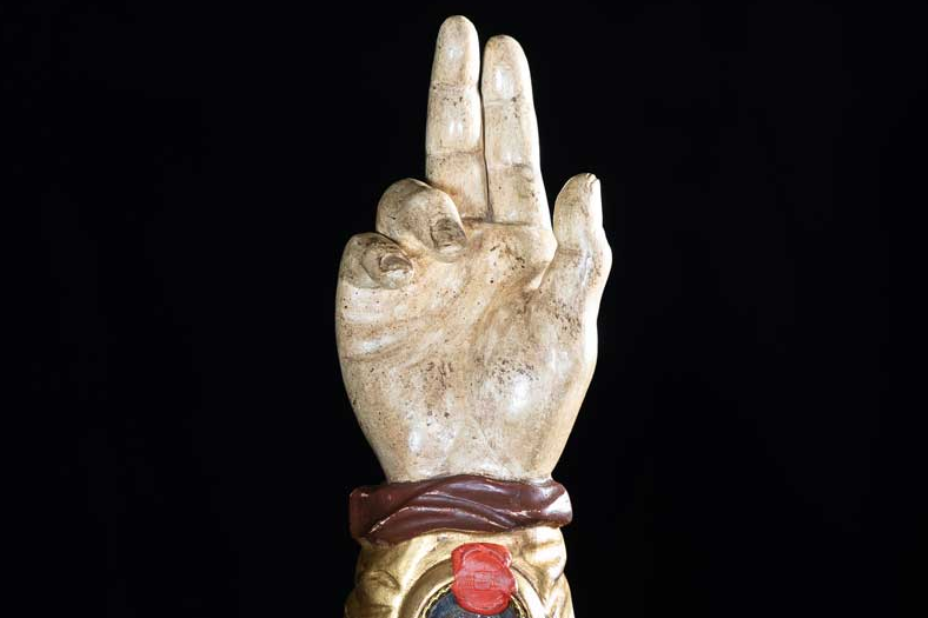Relic of St. Jude on US tour is now in Southern California

Image: The Apostle of the Impossible website
LOS ANGELES – For the first time in history, the relic of St. Jude, known as the saint of the impossible, was taken out of Rome and has been touring the United States.
Several thousand people flocked to the Christ Cathedral in Garden Grove where the relic was on display last week.
This is the first time the relic of St. Jude – one of the Catholic Church’s most beloved saints– has left Rome in 1,700 years, according to Carlos Martins, the director of Vatican Pilgrimage of the major relics of St. Jude.
Martins says Saint Jude’s visit offers a unique opportunity for devotees and the curious alike to experience a connection with one of the most venerated figures in Christian history.
“The visit provides an opportunity for individuals to experience intimacy with someone who dwells in Heaven and beholds God face-to-face,” he says. “It allows devotees to receive his blessing and entrust him with their petitions.”
Miracles
“Saint Jude is the one to whom people turn when they are desperate and have tried everything else,” the tour website says. “When things seem lost or unbearable—when they seem hopeless—Saint Jude is the one to whom people often turn.”
Martins, who has been ministering with relics for almost 30 years, remarks, “God never disappoints but always ‘shows up’ at an exposition. There are healings at each one. Thousand have been reported to me. Spectacular ones. Attendees have reported cancer, heart disease, tumors, osteoporosis, physical deformities, etc., disappear immediately and completely.”
Though a great number of miracles have been physical, Martins says the most spectacular is the healing of faith, where a new and deeper relationship with God and His saints form in the faithful.
“It is wonderful to see a parish, school or prison renewed after an exposition. That is the basis for this ministry’s existence, and I cannot wait to see how Saint Jude will add to it,” he says.
About the relic
Saint Jude’s body was buried in the place of his martyrdom but was transferred to Rome during the time of Emperor Constantine.
His tomb rests directly below the main altar of the left transept of St. Peter’s Basilica. Several centuries ago, his arm was removed and placed in a simple wooden reliquary carved in the shape of a priestly arm, imparting a blessing.
The tour schedule, which continues to be expanded, can be found here.

